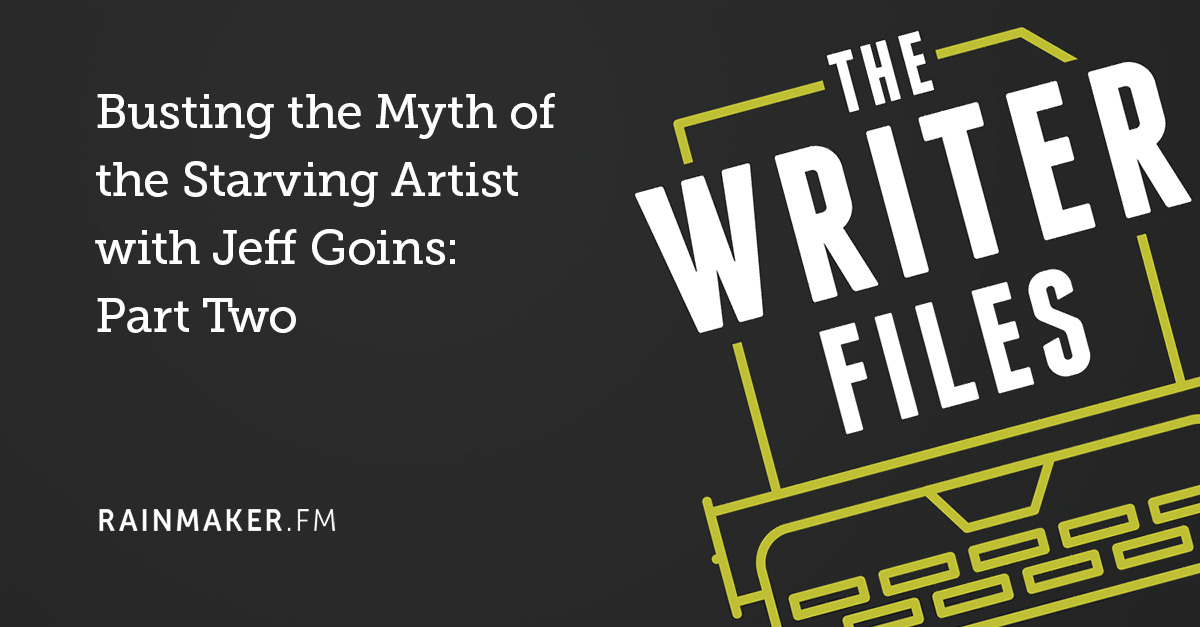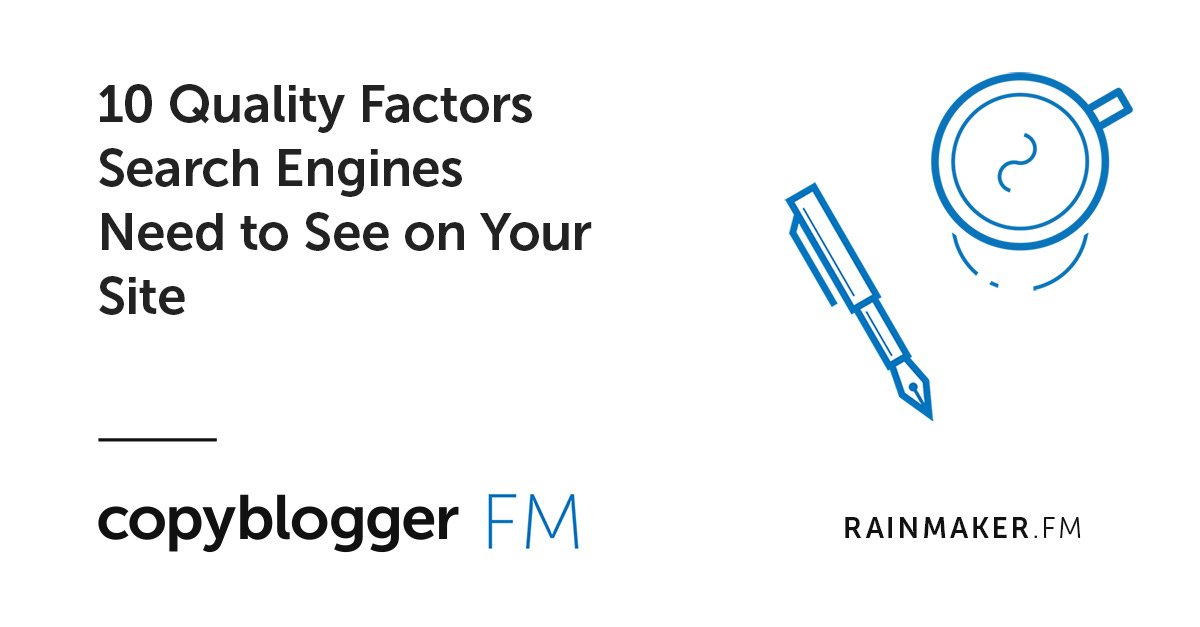Imagine a world without search engines.
It’s easy if you try.
No more surprise Google updates. No more worrying about XML sitemaps, robots.txt, and content analysis and optimization.
And perhaps most importantly, no more keyword research.
That last one means you’re going to have to go old-school to figure out the language of your audience to reflect it back to them. It’s going to take a lot more work.
You didn’t think you were going to get out of that one, did you?
Choosing the right words
“The difference between the almost right word and the right word is the difference between the lightning bug and the lightning.” – Mark Twain
When you’re executing on your content marketing strategy, what you say is crucial. But when it comes right down to engaging and converting your intended audience, how you say it becomes the definitive difference.
You need to speak the language of the audience. In a world with search engines, you get a glimpse directly into the mind of your prospect, based on the language they use when seeking a solution to a problem or looking for the answer to a question.
Back before search engines, writers and advertisers still had to discover the language of the intended audience. It just took more work.
You’ve likely heard of Eugene Schwartz, one of the most influential copywriters in the history of the craft. This is what he said on the topic back in the 1960s:
“One hour a day, read. Read everything in the world except your business. Read junk. Very much junk. Read so that anything that interests you will stick in your memory. Just read, just read, just read … There is your audience. There is the language. There are the words that they use.”
In that scenario, you’d have to rely solely on other content creators to get the language right. How do you know they did the proper work?
Still want to live in a world without search engines and keyword research?
You’re already doing the work
Let me be frank … it’s simply negligent to not use keyword research to understand the language of your audience so that you can reflect it back to them. And even when I’m not Frank (who is that, anyway?), you’re simply doing content marketing poorly if you’re not discovering and addressing the related topics that your prospects care about.
And once you’re covering the topics that matter, and using the language your audience uses, you’re doing most of what matters for search engine optimization. You don’t have to obnoxiously repeat keyword phrases anymore — Google has been smarter than that for years now.
For example, voice search has increased sevenfold since 2010, thanks to mobile. This gives you a more conversational glimpse into the minds of your audience, while also allowing you to write in a natural, engaging manner that Google still understands.
Plus, Google’s semantic abilities continue to improve. The algorithm interprets queries based on what users mean, even if that differs from what they searched. And Google’s AI is even beginning to understand metaphors.
In short, if you do the work that’s required to understand the language and cover the topics your audience cares about in the context of doing business with you, you’re doing the bulk of the work that constitutes modern SEO.
From there, the rest of the learning curve isn’t that bad. And you’ve got technology on your side for that.
The real danger of focusing on SEO
The real danger of SEO isn’t that you’ll create content designed for robots. People use search engines, not robots — so you’re always creating for humans. And Google not only wants you to do that, they require it.
You run into problems when you chase search traffic as if it’s an end instead of a means. The intentional nature of search traffic makes it a potential gold mine, but only if you do something with it.
In other words, ranking number one in Google for a coveted search term means nothing if that traffic doesn’t further a business objective.
- Are they likely to click deeper into the site?
- How about a content upgrade that gets them on your email list?
- Can you get them to check out your product or service?
There’s nothing worse than a quick bounce. And search traffic bounces even if you do a great job of answering the initial question — if you don’t give them a next step, that is.
Traffic doesn’t mean squat without some form of conversion. And search traffic is not your audience; it’s just a highly qualified missed opportunity unless you get them onto an email list or prompt them to make a purchase.
The SEO last mile
If you’re doing the real work of understanding the problems, desires, and language of your audience, you might as well do the remaining work of optimizing for search engines. And most of that is handled by technology.
Primarily, you need a mobile-friendly site that loads fast. Which, let’s face it, you’d need even in our imaginary scenario where search engines don’t exist. People are still people, and that’s why Google wants you to optimize for their experience.
If you’ve done the extra work to rank well in search engines, you now owe it to yourself to optimize for conversion as well — because that’s what you need to do for any kind of traffic, right?
Which brings me to my real point here. Outside of purely technical issues due to legacy website problems, SEO is not separate from content marketing. It’s an integrated aspect of content marketing.
Yes, you need a fast-loading, mobile-responsive WordPress website. Plus, you can use technology tools to implement all the search optimization you’ll need, including:
- Keyword research, content analysis, and optimization tools
- Advanced schema control
- XML sitemaps
- Robots.txt generation
- Asynchronous JavaScript loading
- Enhanced Open Graph output
- Breadcrumb title control
- Google AMP support
Check out this handy guide that explains what all of this means to your website’s success.



![[08] 10 Goals that Make Content Marketing Meaningful](../../rainmaker.fm/wp-content/uploads/2017/07/sites-008.jpg)


Thank you, Brian, for this true and factual look at content creation and marketing. No matter what, SEO is part of creating high-quality content. Optimizing for conversion is a skill I am still learning! Your post is quite encouraging!
The rise and rise of social media means that content is becoming more important than SEO. Pity that SEO is seen as more valuable than great copy.
Hey Brian,
I can totally resonate to this article. From the past few years, I have always been thinking about the latest google updates and all about SEO. But since the day I got to know about the language my readers speak, I have never really looked for SEO.
Though it’s necessary for the robots to crawl your blog but it shouldn’t cost your readers anything.
The content you provide needs to be told truthfully. I remember when I read an article about killing SEO tips and nothing was available.
For beginners, SEO factor can be a thing to focus on. It’s because other bloggers make their mind think like that.
Reading and crafting the content for your audience is what you need.
Thanks for this article.
~Ravi
Superb article. Loved the line ‘In other words, ranking number one in Google for a coveted search term means nothing if that traffic doesn’t further a business objective’. I totally dig it.
So many self proclaimed SEO experts are blind to the other factors, while focusing solely in increasing the page rank; but whats the point in ranking higher if the conversion is poor? I have thought so many times about this.
Thanks for this. Best rgds!
“There’s nothing worse than a quick bounce.”
That says it all.
I’ll admit I tackled SEO all wrong to begin with, I was even reading and following old literature! I wish I had found handy & concise articles like this sooner! Many thanks!
Exactly, thank you Brian. It seems a lot of people focus solely on SEO and rankings and not think if their content is useful to their audience or not.
well said Brain.
Focusing solely on SEO is a Dead man task. For your business to nurture and grow you should have deep research about your customers.
Every possible questions related to customers should be answered and this query gives you proper keywords, proper products and also competition to focus upon.
thanks for the great article.
Thanks Brian for this remarkable post of yours! You’re truly a brain for creating a web copy more engaging to the readers. I can’t imagine what John Lennon would say if he had found out someone like you sooner in his musical career…
The dark side of SEO is that people are accustomed to the rules and variables set by the search engines but often forget that the readers are just human beings. For me, to connect or to engage is to give and provide more valuable and high-quality contents. It’s not a war between the quality CONTENT vs SEO – it just takes two to tango!
I have always disagreed when someone makes a recommendation that a low bounce rate is good. I mean, if people were to come to your page and immediately find the solution or information that they are looking for, they are going to be on their way, isn’t it. That is going to reflect as a high bounce rate. It won’t be fair for sites like this to be penalized or even discounted in Google’s algo….
That’s assuming that worrying about how the algorithm works is how you should be spending your time.
If your user comes to your site, finds what she needs, and leaves — has it benefited your business? If it’s your store address and hours, then yes. If it’s a piece of interesting information that doesn’t lead anywhere else in your business, then perhaps no.
Repeating Brian’s point,
How the algorithm sees the bounce is secondary to what that particular bounce means for your business.
As rightly said by Jeff Korhan, “There’s nothing worse than a quick bounce.” If one’s content fails to deliver what it promises in the headline, visitors will quickly leave the page. Pogo sticking will get the ranking of that page down eventually.
Your post is Excellent as always, Brian. I wonder how you write in such a free flow and make it interesting, even when the topic is boring. Really, a useful post!
Hi Brian,
Excellent post and great reminder that “people are people” and we are writing for them not just to rank.
The real work is writing content that is genuine and authentic to help our readers take that next step, which leads to that win-win situation. Like you have said, traffic is nothing without conversion!
It can be disheartening when you try to create good content on a regular basis and get no traction however this will not deter me from trying.
Inspiring better content as usual Chasing keywords might have worked in the past and we still can’t let it go…
Chasing keywords might have worked in the past and we still can’t let it go…
It’s funny in fact, because search engine algorithms are trying to mimic real people, but we’ve started working for the bots, instead of focusing on the people.
It’s like treating the symptom , not the pain…
I also agree that listening to your audience is the best way to find you language (or keywords). For example, I started an artist consulting business focusing on building Etsy shops. In all my marketing I used to call my audience “Etsy newbies” and they were fine with that…But soon I realized THEY don’t call themselves that… They call themselves “makers”. Now, that I use the right word, everything I say feels spot on! And engages my audience too!
It has always amazed me how people get stressed out about search engine optimization. All of Google’s updates are about refining their process to make sure that they list results that people want to read, so if you write for people then you don’t need to worry about the search engines other than making sure that they can access and process your content.
Like you said, keyword research is about meeting your prospects where they are – what they want to know and the language that they use to describe their problem. Once you have that you can lead them to your solution.
This is one of the best “advertorials” I’ve ever read. Great information leads to a little pitch for something good.
My favorite advertorial ever, though, is http://www.gq.com/story/pogues-irish-whiskey. It’s content marketing that gets right everything you’ve talked about in your last several posts, including SEO.